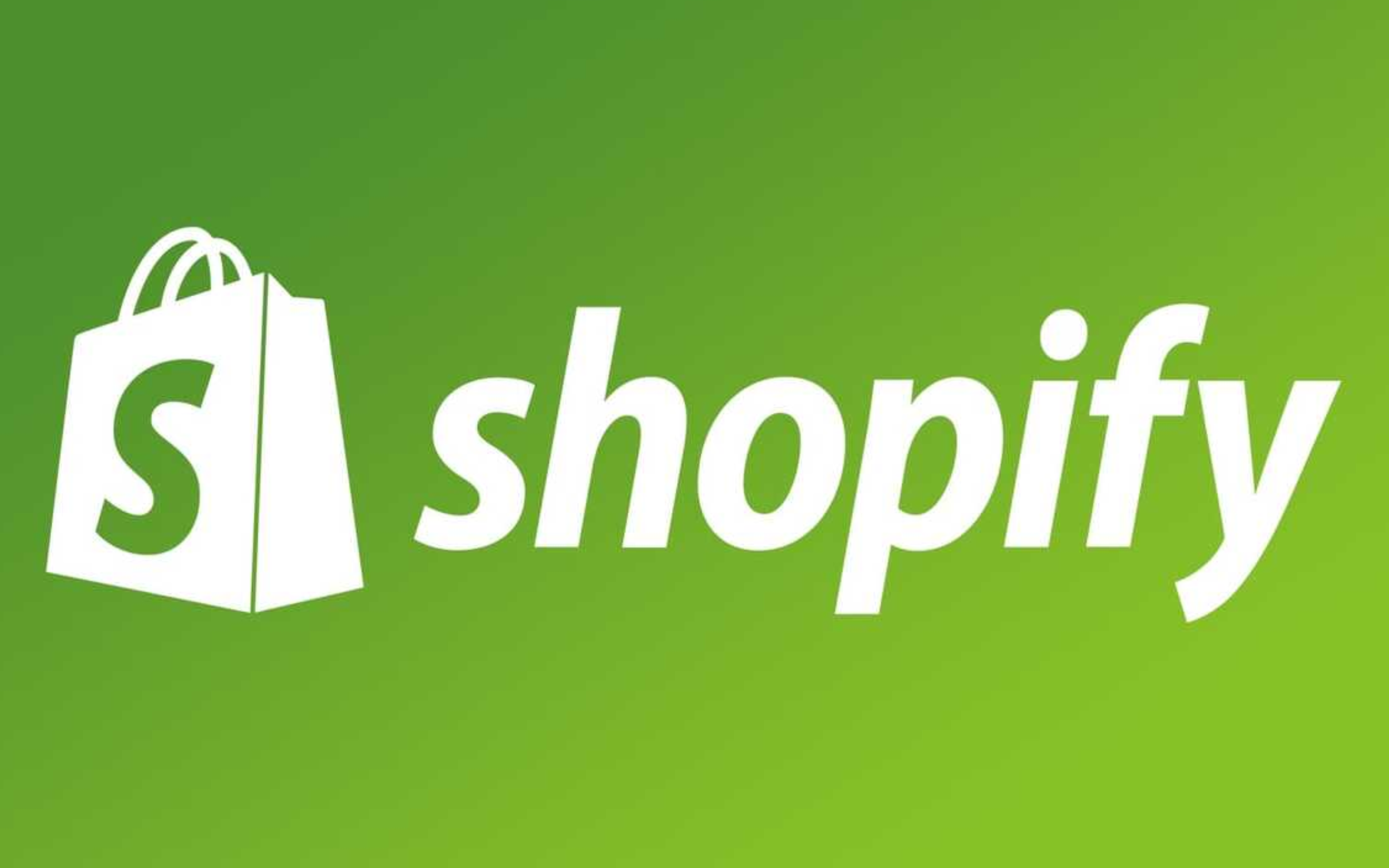Over the years, the Indian e-commerce industry has experienced significant change characterized by the increased adoption of technology, high internet usage among the population, and evolving customer behavior.
More and more companies are trying to explore the opportunities in the World Wide Web and make a move into the electronic commerce industry; as such, there is a growing necessity for effective efficient, and indeed powerful platforms and engines.
Though Shopify has established itself as a popular platform in the world, there are various other best Shopify alternatives in India and foreign countries that have started providing various tools and solutions for the Indian market.
Indian E-Commerce Industry
The Indian E-commerce industry is a broad umbrella under which many marketplaces, online trading portals, and seller/buyer firms are located in India. It has veered itself from infancy to being a prominent and continuously expanding industry due to growth indicators such as increasing disposable income, preference for online purchasing, and consumer access to products across so many categories.
It covers a broad category of micro-sectors which consists of fashion, electronics, home appliances, beauty and personal care, and many others. The Indian e-commerce industry has evolved vastly over the years, and more prominent players like Amazon and Flipkart have entered this space along with numerous online marketplaces from India.
Gross merchandise value, a measure of the total value of products sold through B2C e-commerce across all categories, is expected to soar through the roof, with forecasters pointing to 2025 as the year the Indian e-commerce market will cross $100 billion.
What is Shopify?
Before we talk about Shopify alternatives, Let us know about what Shopify is. Shopify is a business website-building platform that has its origin in Canada and has firmly made its presence internationally. Some of these are: It offers a full range of applications and solutions for companies to build, operate, and grow their forward e-commerce ventures. Shopify has grown to become one of the most popular e-commerce platforms since it offers an easy-to-use interface, powerful tools, and a rich ecosystem of applications and other services.
Professional tools provided by Shopify include flexible web templates, secure hosting services, management of a product stock, payment system services, different marketing solutions, and analytical services. Due to its simplicity, it has become easy for businesses to embrace the system.
Although Shopify has expanded its presence across the world, the South Asian market specifically within the Indian market differs in several ways. For this reason, several alternatives have appeared to adapt to the particularities of the Indian market and provide localized solutions and translations, as well as integration into the most commonly used Indian payment gateways.
Advantages and Disadvantages of Shopify
Shopify has emerged as one of the most chosen platforms for e-commerce, helping businesses, whether big or small, to create functional websites and sell products online.
It has garnered an immensely warm reception from the current generations of assimilated entrepreneurs and retailers due to its friendly interface, flexibility, ample customization options, and strong support system.
Advantages of Shopify:
1. Ease of Use: Another benefit of using Shopify is that it has a concept of the simplest possible interface that any user can understand. This means that even those who have little experience in technology will be able to create and run their stores with relatively simple steps that require no complicated programming or designing.
2. Comprehensive Features: Shopify covers all the necessary aspects and provides its users with tools and services that can make their e-commerce experience as smooth as possible.
3. Scalability: It allows your business to expand and Access new markets, products, and services by seamlessly integrating with other platforms. In general, the size of the business in question does not affect the function and the capacity of the platform at all.
4. Mobile Responsiveness: With the focus being on going mobile today, the nadir of any online store is not responsive or mobile-compatible. Most important eCommerce website designing companies like Shopify make sure that your e-commerce site appearance looks perfect.
5. Access to Apps and Integrations: Shopify prides itself on having a rich app store and app partnerships that allow enterprises to optimize their online stores. As for the app store, it encompasses advertising and marketing tools, analytics and marketing tools, and delivery and shipping tools.
Disadvantages of Shopify:
1. Transaction Fees: Shopify has different pricing tiers, but it operates based on a monthly subscription fee for using the platform and transaction fees for every transaction performed on the website selling the products. These transaction fees, while relatively small, can end up increasing the operational cost.
2. Limited Customization: While Shopify offers themes and templates that allow for further customization, the platform is generally closed-source, which could hinder the customization business owners can implement. While some of the features may be customizable to the extent the user desires.
3. Limited Control over SEO: Another drawback is that like most commerce solutions, Shopify comes with at least minimal built-in SEO features although some businesses may consider the platform’s SEO capabilities somewhat restrictive if compared to such platforms as self-hosted or open-source ones.
4. Reliance on Shopify’s Ecosystem: It means that by selecting Shopify, companies and sellers depend solely on the ecosystem of the platform as well as its apps, themes, and connections. Any modification or new updates introduced to the Shopify system may affect the overall operations and efficiency of your eCommerce website.
5. Potential for Vendor Lock-in: The migration of online stores from Shopify can be rather cumbersome and could take a lot of time and space hence making the aspect of vendor lock plausible.
15 Best Shopify Alternatives in India
Let’s explore some of the best alternatives of Shopify in India for 2025;
1. WooCommerce
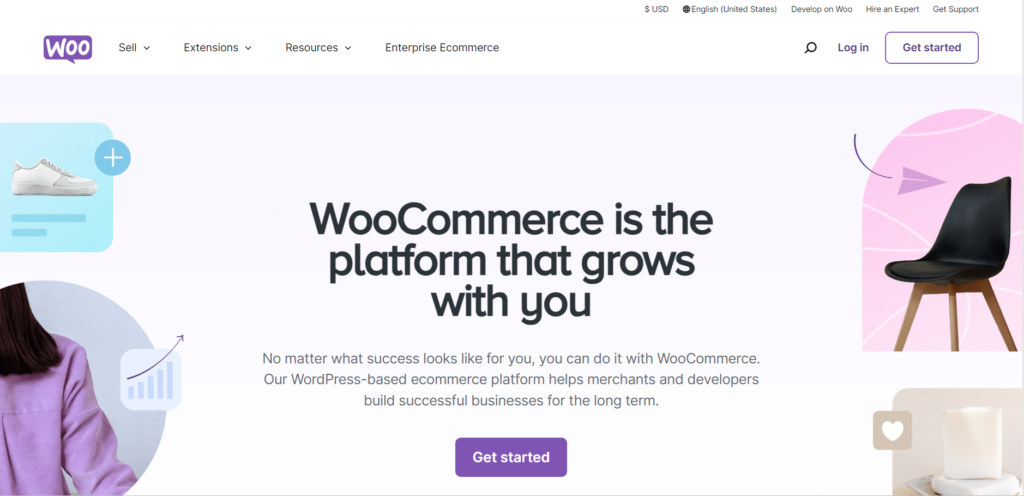
WooCommerce is a free software application that can be integrated into WordPress to provide the functions of an online store. The software provides multiple features such as product management, order management like cart and checkout, and payment gateways.
WooCommerce would be referred to because it offers almost limitless customization and has a multitude of available extensions to accommodate the needs of small to medium-sized enterprises.
Key Features:
- This guarantees the inclusion of broad theme and plugin choices,
- a sound product management,
- secure payment modules integrated with WordPress.
Pros:
- Truly free to use and easy to modify,
- it has a vast community backing, and most importantly,
- not very expensive in terms of usage.
Cons:
- Native software may be needed for higher-level technical expertise ;
- Potential security threats, if not updated and maintained regularly.
Pricing: The core plugin is free, however, extensions, and theme settings, may prompt users to pay an extra dime.
Website: https://woocommerce.com/
2. BigCommerce
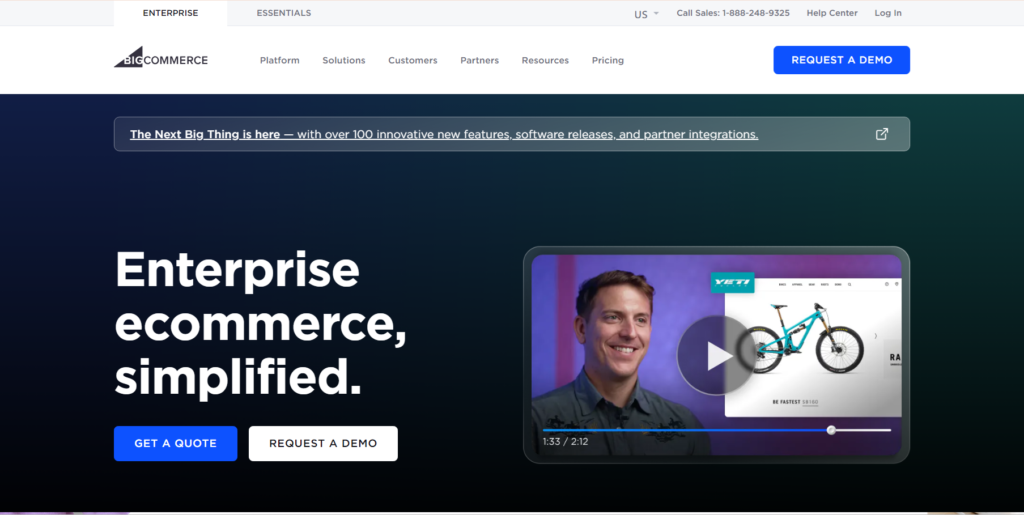
BigCommerce is an e-commerce solution, which means that it is a fully hosted solution, deployed in the cloud and packed with features such as catalog management and marketing tools, and a payment gateway.
The reasons that make people aware of it are that it is easy to use, has great capabilities to grow and develop online businesses, and has strong shells too. As for the payments section, BigCommerce provides several pricing plans to choose from according to your business requirements.
Key Features:
- Their focus on adaptive storefront design,
- enhancing the way customers can filter products,
- multi-channel selling and integration options.
Pros:
- Clean design concepts,
- strong multi-tier capabilities,
- huge number of integrated components.
Cons:
- Comparatively shorter customization options than open source platforms in
- Can be a little costly for bigger and larger businesses.
Pricing: Pricing also begins at $29 per month. In detail, it costs $55/month for the basic package, $95/month for the growth package with extra fees for the enterprise package.
Website: https://www.bigcommerce.com/
3. Magento
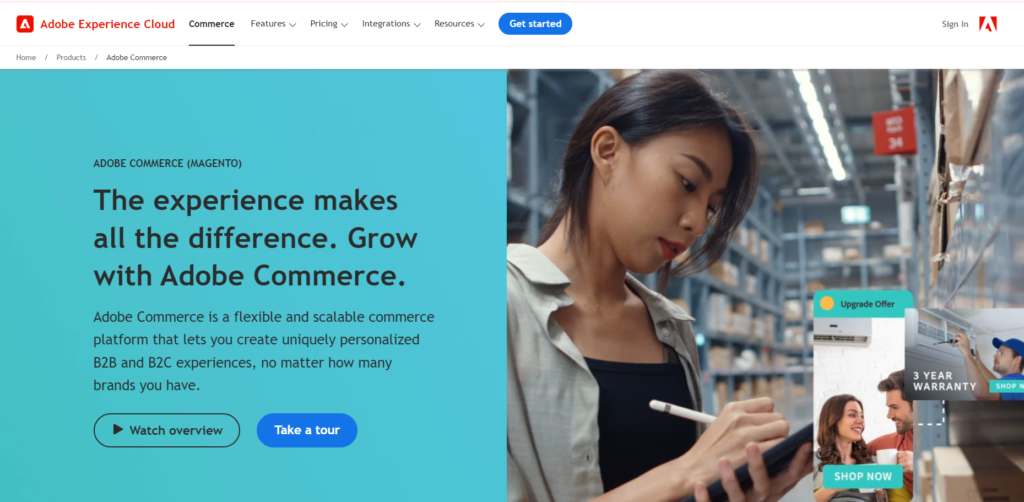
Magento is an open-source e-commerce platform that offers two versions: Magento Open Source and Magento Connect (paid version). Its flexibility and extensibility are also great and recommended in for large and enterprise use. This is because Magento has numerous features such as catalog management, flexible marketing, and third-party integration.
Key Features:
- There is strong product manageability,
- flexibility of payments/shipping options,
- strong marketing and SEO features,
- an option for multiple stores.
Pros:
- Highly customizable,
- extensive feature set,
- scalable for large businesses.
Cons:
- The steep learning curve,
- Potential high costs of its development and maintenance.
Pricing: Magento OS is open-source which is free while Magento Commerce’s (cloud) basic plan goes for $2200 per year.
Website: https://magento.com/
4. Shift4Shop

Shift4Shop refers to a type of platform designed for business that sells their products through the Internet and it comes with various features that include; web design, product, and payment services. It also boasts of its rich and easily navigable interface, an attractive feature for many users notably its customer support services.
Key Features:
- Search Engine Optimization,
- automatic notifications for customers leaving the store,
- ability to add as many products as one wants,
- SSL Certificate.
Pros:
- Intuitive interface,
- robust features,
- 24/7 customer support.
Cons:
- Limited customization options,
- possible combined costs of certain specific payment processing options such as the transaction fees.
Pricing: Basic plans are available from $29 per month with all the more complex and additional tools being charged extra.
Website: https://www.shift4shop.com/
5. Squarespace
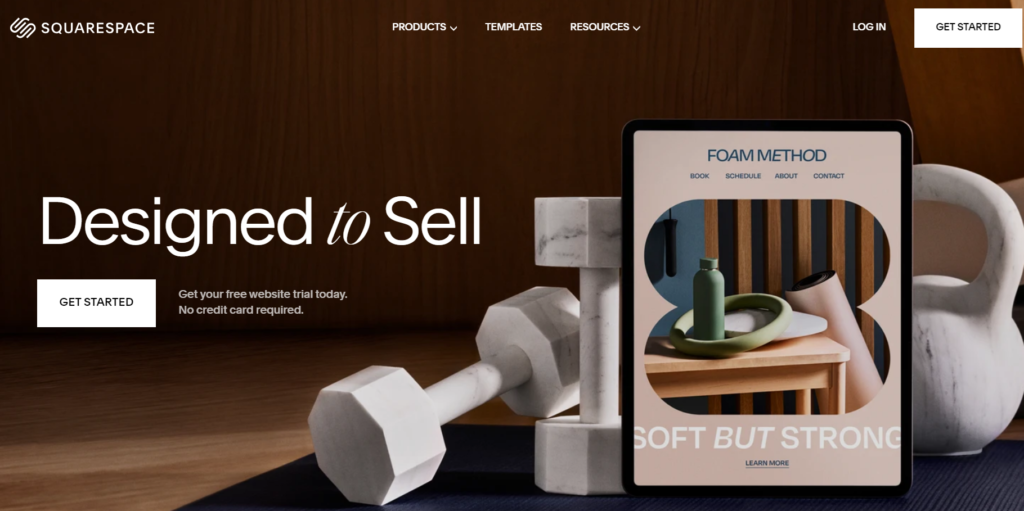
A web application to design websites and blogs as well as provide web hosting and selling services. It is popular for offering well-designed templates and simple user interfaces, the best tool for small businesses and start-ups. Some of the tools that are offered include the provision of tools that enable users to build online stores, tools that enable users to handle products and tools that enable users to accept payments.
Key Features:
- It has templates used in designing beautiful products:
- stored email marketing,
- analyzed, and mobile-friendly sites.
Pros:
- Excellent design capabilities,
- user-friendly interface,
- integrated blogging platform.
Cons:
- Limited product management
- inventory features,
- Smaller stores benefit from lower costs than larger stores.
Pricing: It varies from $16 per month for e-commerce inclusion and there are extra charges for the extra service.
Website: https://www.squarespace.com/
6. Wix
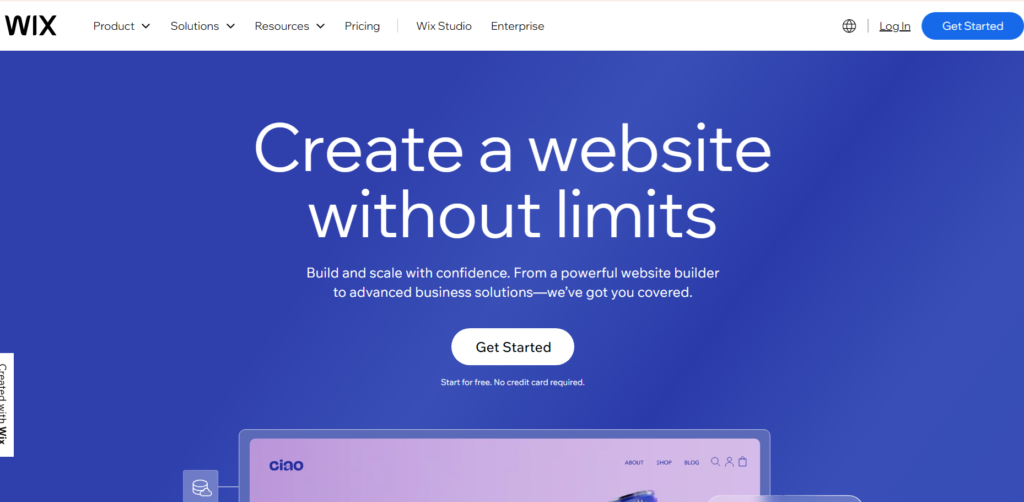
It is a cloud-based website builder that also includes some e-business capabilities. It allows for the easy creation of websites for selling products online, product management, and payment via modules that are easily transferred on the interface through pointing and clicking. Another popular website builder is Wix due to the simplicity of use and flexible set of web templates that can be useful for small business owners and start-up enthusiasts.
Key Features:
- Website creation by drag and drop,
- website design with a mobile-first approach,
- online payment processing, and advertising features.
Pros:
- User-friendly interface,
- extensive template options,
- affordable pricing.
Cons:
- Limited customization options,
- several payment gateways, and other transaction fee charges for transactions.
Pricing: They are arranged from $23 monthly for access to e-commerce and some extra charges for other features.
Website: https://www.wix.com/
7. Big Cartel
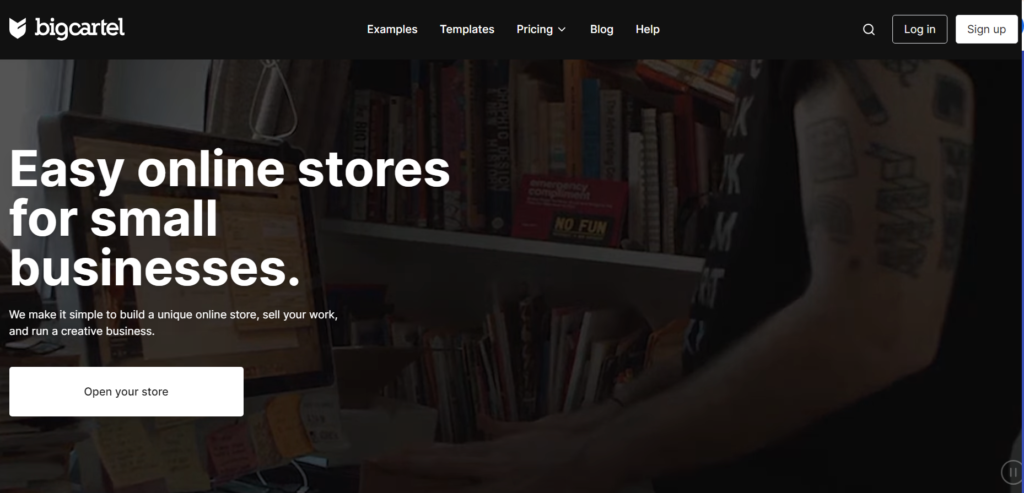
Big Cartel is an eCommerce software made for artists, creators, and designers that sell customized products. The Wix store has an uncomplex design for creating an online store, catering to various products, and receiving payment. Simplicity, or rather, low prices is one of Big Cartel’s main strengths, along with the target audience of artists, designers, and small businesses.
Key Features:
- It has clean and easy-to-organize products;
- bespoke design of the shopfront;
- mobile-friendly design and social media links.
Pros:
- Affordable pricing,
- easy setup,
- simple and clean design.
Cons:
- Limited feature set,
- They are not suitable where the business is big or complex
Pricing: Each plan begins at $9. To start with, it comes with various packages whereby one can subscribe to the site for 99 dollars every month with other add-on charges.
Website: https://www.bigcartel.com/
8. Dukaan
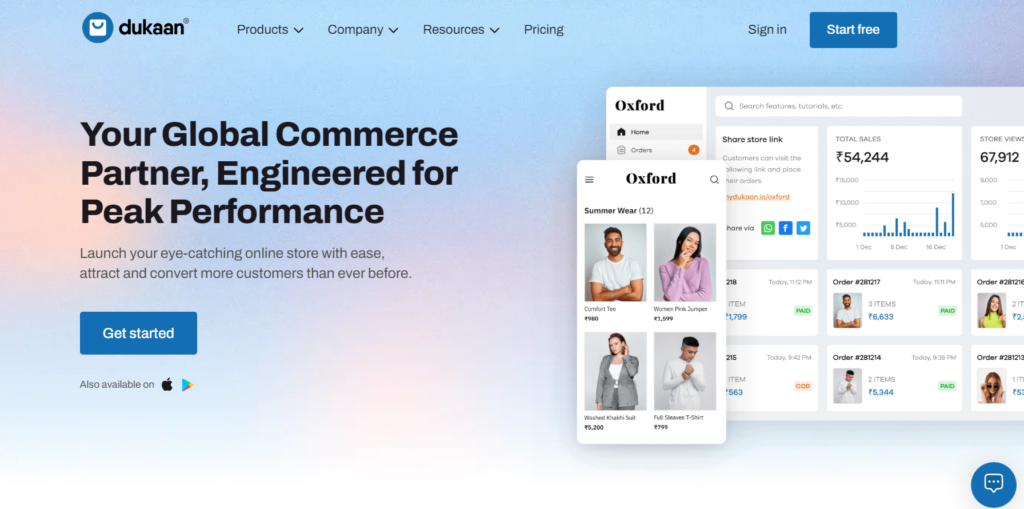
Dukaan is an online marketplace B2B solution with an emphasis on SMBs targeting the Indian market. It provides marketers with tools to easily set up online stores, products, and customer processing solutions. Dukaan offers an affordable platform to cater to emerging trends and local business requirements in India.
Key Features:
- Essentially, it involved designing basic storefronts,
- hooking up with social media,
- payment security, and product inventory.
Pros:
- Affordable pricing,
- user-friendly interface,
- localized support.
Cons:
- The limited feature set
- May be more appropriate for small and mid-size businesses,
- but not fit for large and more complicated organizations.
Pricing: Basic pricing tier is free with the paid options starting at ₹999 per month.
Website: https://dukaan.io/
9. PinnacleCart
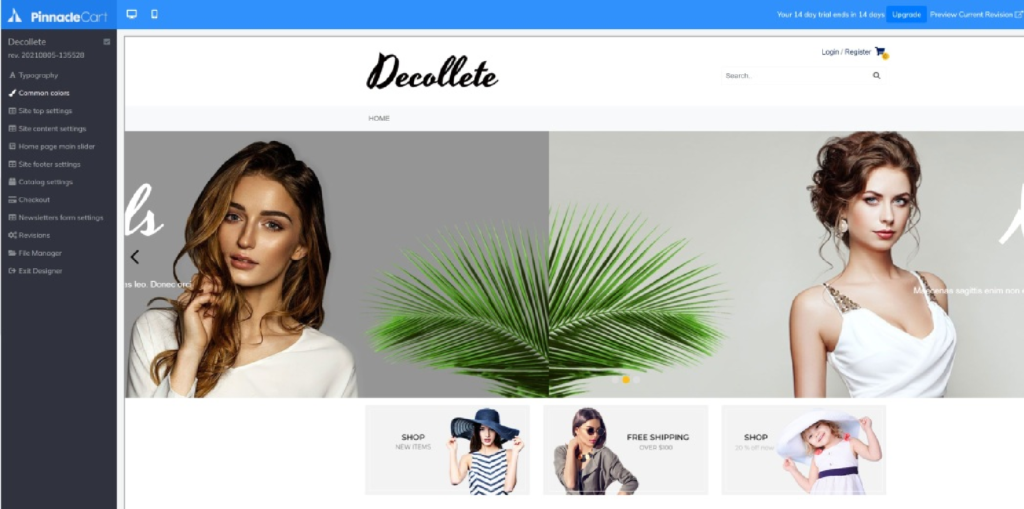
PinnacleCart is software that has distinct features and allows the management of products, handling of orders, and marketing resources for any Internet business. It is famous for its versatility and possibility to adjust types and options according to the size of the organization. It has various pricing scales depending on the choice preferred by the business.
Key Features:
- the ability to manage multiple products,
- secure payment processing, multiple currencies,
- marketing features.
Pros:
- Efficient and diverse set of features,
- easily expandable,
- highly customizable.
Cons:
- Possible steep learning curve
- costs exceeding if utilized by larger corporations.
Pricing: Pricing tiers begin from $49 for plans. $95/ month, with a fee for adding more features on top of the basic package.
Website: https://www.pinnaclecart.com/
10. Weebly
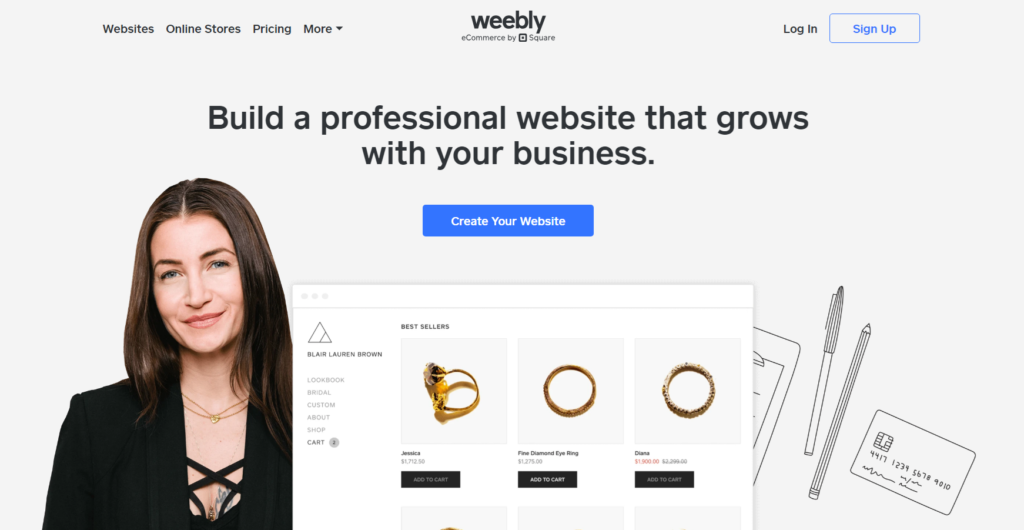
Weebly is a Website creation tool that comes with e-commerce facilities as well. It offers features that make it easy to set up online stores, navigate products, and process payments. Weebly has gained a reputation for its user-friendliness as well as inexpensive features that are ideal for start-ups.
Key Features:
- Features for functionality include the drag-and-drop web design,
- a mobile-friendly layout, for security there are online payments,
- marketing tools for the website
Pros:
- It has a user-friendly interface,
- It is very cheap compared to most of its competitors
- It offers numerous choices of templates.
Cons:
- Small business-specific,
- basic and not comprehensive for larger or more complex businesses,
- potential charges by payment gateways.
Pricing: These plans begin from $12 per month with other costs being incurred to access functionality such as the e-commerce tools.
Website: https://www.weebly.com/
11. OpenCart
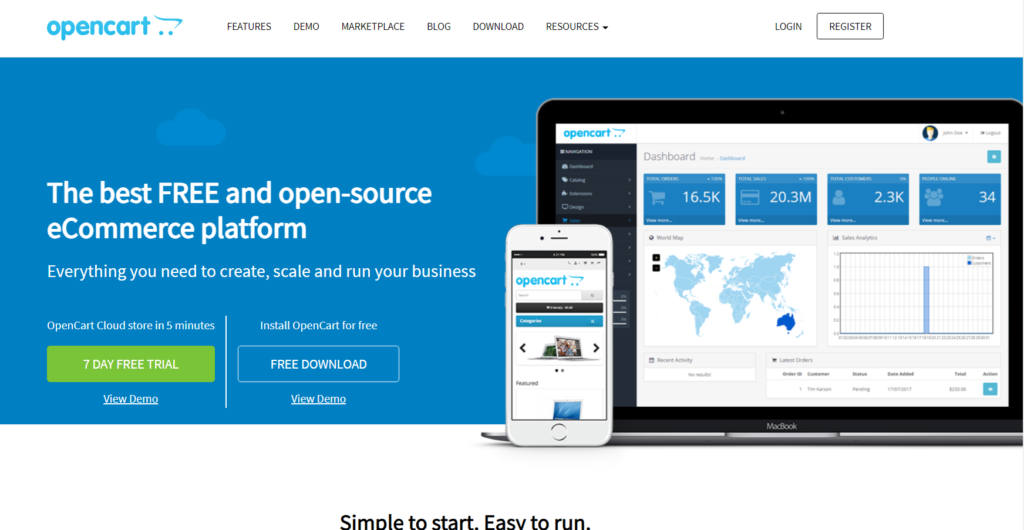
OpenCart is an e-shopping cart solution that is available ‘free-of-charge’ under the ‘. openCart’ license and is distributed ‘under the terms of the General Public License’. It is notably easy to use and has much room for personalization, as well as a vast number of constrained users and programmers. OpenCart is one of the most widespread platforms that can be used by small and mid-size companies.
Key Features:
- The available features and future possibilities for its extensions,
- translation into other languages,
- search engine optimization,
- safe money transactions.
Pros:
- Huge global support and licensing,
- a big array of opportunities for changes and implementations,
- not expensive.
Cons:
- Lacks flexibility and may need a little technical knowledge for executing further customization,
- very much susceptible to security risks if not updated frequently.
Pricing: Paid core platform, basic extensions, and themes are free of charge but extended features may be bought.
Website: https://www.opencart.com/
12. PrestaShop
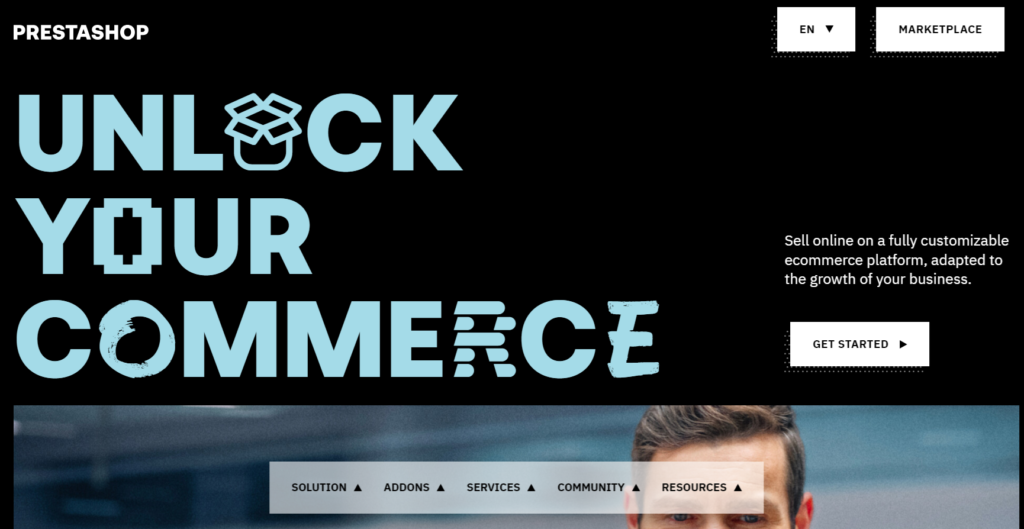
This is an open-source e-commerce solution with a wide set of functionalities that allow to build and maintain internet shops. It is also notable for its simplistic design and features and an advanced level of customization, combined with a vast user base and several fans and developers. Based on their size, it can be said that PrestaShop can be used for businesses of various types of scale.
Key Features:
- Mobility, improved product controls,
- payments safety,
- multiple store functions and more.
Pros:
- Ideal for complex environments,
- little commercial backing,
- easily extensible,
- open source,
- inexpensive.
Cons:
- Difficult to master for complex modifications/customizations,
- a security risk if the software is not updated occasionally.
Pricing: Some basic core platform features, and additional applications and styles, called extensions and themes, may cost extra money.
Website: https://www.prestashop.com/
13. Sellfy
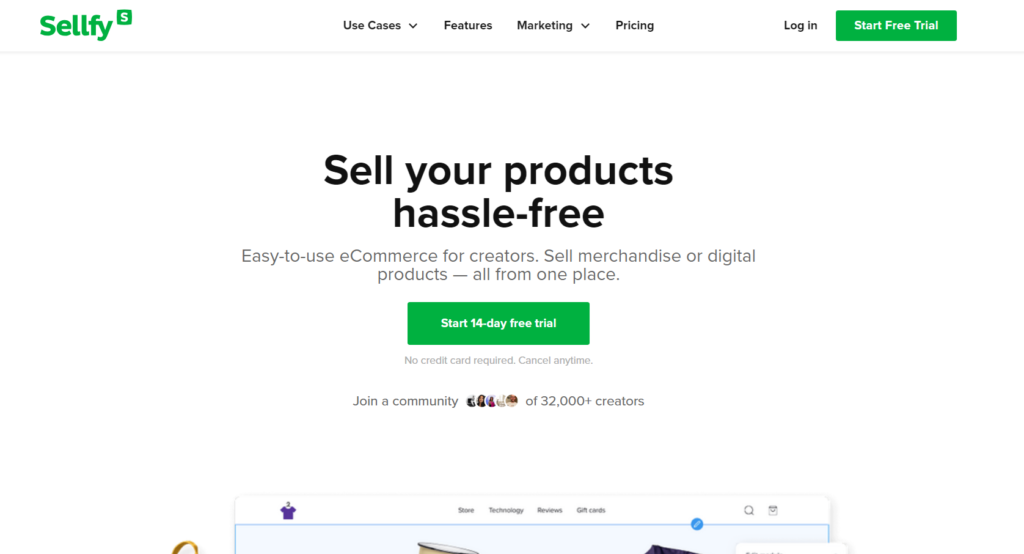
Sellfy is an eCommerce platform that was created with the intent of selling digital products, including e-books, music, videos, and online courses. It has a clean board where users can easily navigate to create and access the store for their digital products. Another main selling point is, that Sellfy has one of the simplest interfaces and it is aimed to cater to digital sellers and marketers.
Key Features:
- Marketing automation,
- E-commerce platforms and payment gateways,
- subscription management, and lead generation,
- customer journey analytics and management.
Pros:
- They are quite easy to use,
- set up and the prices are quite reasonable especially when selling digital products.
Cons:
- Some negative aspects of this functionality
- Fewer of them in comparison with the social platform;
- There may be transaction fees for some payment gateways.
Pricing: Beginning pricing ranges from $19 a month to $99 a month while advanced options attract extra charges.
Website: https://sellfy.com/
14. Volusion

Volusion is an e-commerce website builder that provides customers with the tools to create their online stores. This application is easy to use and offers many digital marketing tools as well as extensive reporting features. Volusion has many different pricing tiers based on business needs and wants that are essential for an organization.
Key Features:
- Website adaptation for different screens,
- convenient and flexible product catalog,
- protection of payments in the web service, and advertising possibilities.
Pros:
- More functionalities included,
- very customizable for further expansion,
- plenty of options for customization.
Cons:
- The possibility that strategic training may be more complex and challenging to comprehend,
- greater costs for companies with extensive operations.
Pricing: It begins from $29/month for the basic plan, there is an additional cost for the other features.
Website: https://www.volusion.com/
15. Ecwid
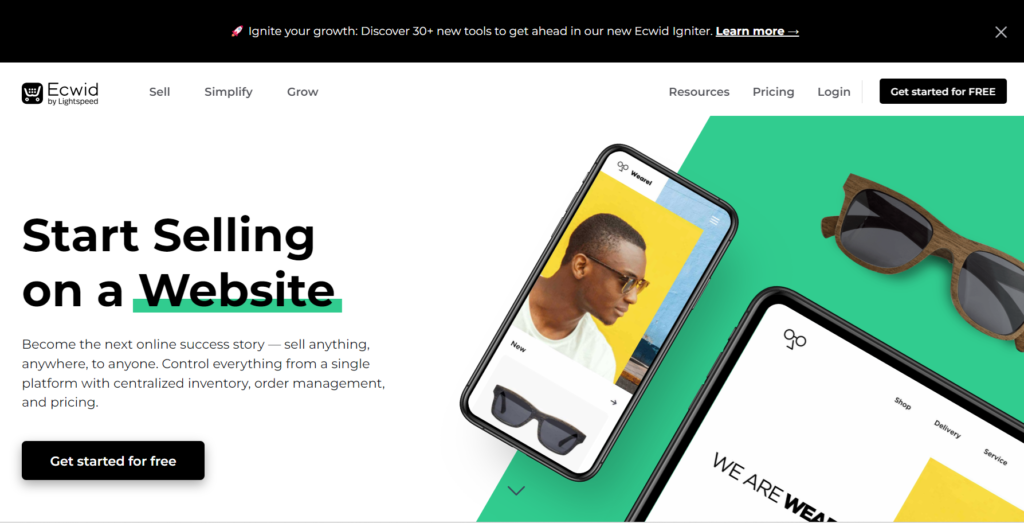
Ecwid is an e-commerce software that integrates with your business website or social media pages where you have your business pages. Some of the key tools that it comprises include features for managing products and orders & payments. Notably, it is easy to integrate this system as it targets mostly small businesses and people who are venturing into the business world.
Key Features:
- Permanent availability of products on websites and social networks,
- websites and accounts optimized for mobile devices,
- safe and fast payment systems,
- control of inventory.
Pros:
- Simple to implement;
- makes you not have to incorporate an e-commerce site
- cheap.
Cons:
- may not be adjustable in terms of customization,
- additional charges for some payment gateway services.
Pricing: Offers a free option but premium plans start from $15 per month.
Website: https://www.ecwid.com/
Conclusion
Selecting the right Shopify alternative in India is indeed a critical decision that can have a direct bearing on one and the enterprise’s fate in business sales, customer relations, and potential growth trajectory. All allow users to post, advertise, and engage in different forms of communication, each with its characteristics and capabilities, affordable rates, and levels of customization for enterprise needs.
Furthermore, businesses need to look closely at their requirements like Product Management, Payment Gateways Integration, Multi-seller configurations, and Marketing functionalities to know if the selected platform is capable of meeting the business requirements for future growth.
These best Shopify alternatives in India for 2025 will aid your business to excel in its growth!
Suggested Read: Facebook Marketplace Alternative
FAQs
1. Which is the top-notch open-source Shopify alternative in India?
WooCommerce and Magento both are open-source e-commerce plugins and platforms that have a hardly limitable level of flexibility and user support.
2. Which Shopify alternative shall suffice the needs of small businesses in India?
Dukaan, Wix, and Weebly: these services allow the creation and launching of websites with simple navigation, low costs, and plain eCommerce tools, which are suitable for business.
3. Are there any Shopify-based options that would directly address digital product sellers in India?
Sellfy is a multimedia e-commerce store that specializes in targeting creators and digital product merchants, who offer downloads, subscriptions, and payment processing to their customers.
